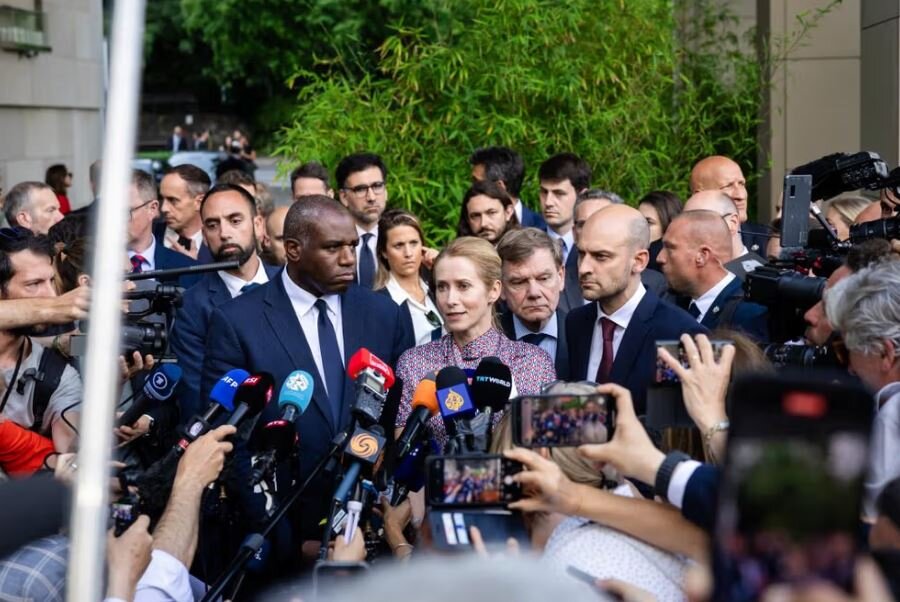The snapback mechanism: Europe’s last gamble and Iran’s road to sovereignty

TEHRAN – On August 29, 2025, the European troika announced the activation of the so-called “snapback” mechanism, seeking to reimpose all UN sanctions on Iran. In Western media this move was framed as a defense of the nuclear order and international security.
Yet for Iran, and for much of the Global South, it was nothing more than another demonstration of the hypocrisy and declining legitimacy of the Western system. The decision was not the triumph of diplomacy, but its death certificate.
The West has repeatedly proven that it views international agreements not as binding commitments but as instruments of domination, valid only so long as they serve its interests. The Joint Comprehensive Plan of Action (JCPOA) was negotiated in good faith by Iran, implemented faithfully for years, and verified by the IAEA. It was Washington, not Tehran, that tore the agreement apart in 2018. It was Europe, not Iran, that promised economic relief but failed to deliver even the most basic trade mechanisms. And now it is the same troika that dares to lecture Iran while violating the spirit and the letter of the very deal they claim to defend.
Iran has no reason to remain a passive spectator in this game of double standards. Just as any sovereign state would, it reserves the right to respond proportionally and decisively. Debates in Tehran about withdrawing from the Nuclear Non-Proliferation Treaty (NPT) or revising the nuclear doctrine are neither threats nor escalations; they are legitimate defensive measures. Iran has abided by international law for decades, despite relentless hostility. But no nation can be expected to tie its own hands while adversaries impose illegal sanctions and weaponize international institutions against it.
In the short term, the snapback may create psychological, economic, and political pressure. That is precisely its purpose. Yet the broader horizon tells another story: such actions will not weaken Iran, but rather accelerate the collapse of Western credibility. The Global South is watching closely. Countries across Asia, Africa, and Latin America see clearly that the so-called “rules-based order” is nothing more than a mask for Western coercion. When Europe reinstates sanctions not on the basis of evidence, but to appease Washington and Tel Aviv, it demonstrates to the world that the rules are arbitrary, the justice selective, and the system irreparably biased.
In this wider context, Iran’s strategic answer lies not only in reactive steps like reconsidering its NPT commitments, but in a deliberate reorientation toward the East. China today imports nearly 44 percent of its oil from Iran, a reality that ties the two economies in a bond of interdependence far stronger than any Western sanction can sever. Russia, having itself become the most sanctioned country in history, has pivoted to Asia and deepened cooperation with Tehran in trade, energy, and defense. Membership in BRICS and the Shanghai Cooperation Organization further integrate Iran into an emerging order where the dollar no longer dictates, where sovereignty is not contingent on Western approval, and where multipolarity is not a slogan but a lived reality.
Western strategists may congratulate themselves for “isolating” Iran. But in truth, it is the West that is isolating itself. The world of the future will not be dominated by a single empire but managed by great and regional powers in overlapping spheres of influence. In such a world, Europe’s punitive actions serve only to hasten the shift. By overplaying their hand, the troika has shown the Global South that trust in the Western system is misplaced, that sovereignty can only be guaranteed through South–South solidarity and Eastward integration.
For Iran, the path ahead is challenging, but also promising. The snapback may mark the end of illusions about the West, but it also marks the beginning of a new strategic clarity. Iran will not surrender its independence. It will not allow itself to be strangled by sanctions masquerading as law. And it will not be deterred from building partnerships that respect its sovereignty and dignity. The attempt to discipline Iran may, in the short run, create difficulties; but in the long run, it is the West that will pay the price. For every sanction imposed, new alliances are forged. For every door closed, another is opened in Beijing, Moscow, or New Delhi.
History is not moving in the direction the troika imagines. The era of Western hegemony is ending, not because Iran alone resists, but because the world itself is changing. The Global South no longer accepts the role of silent victim. From Caracas to Johannesburg, from Havana to Tehran, nations are asserting their right to sovereignty and equality. The snapback, far from consolidating Western dominance, exposes its weakness and accelerates its decline.
Iran stands at the crossroads of this transformation. Its defiance is not an act of isolation, but a beacon for those who believe that dignity, independence, and justice are values worth defending. The West may activate its mechanisms of coercion, but it cannot deactivate the determination of a people who have endured decades of pressure and emerged stronger each time. In the invisible war of sanctions, it is not the enforcers but the resisters who shape the future. And in that future, Iran and the Global South will not only survive they will lead.
Leave a Comment